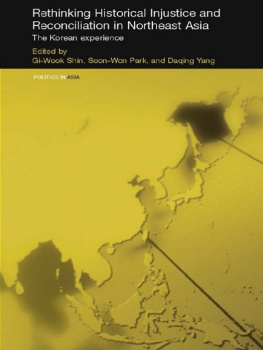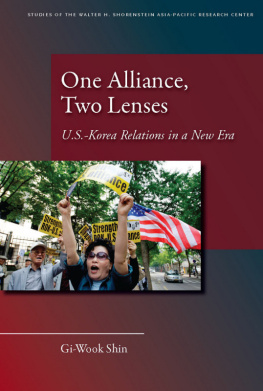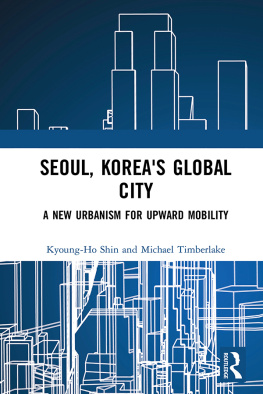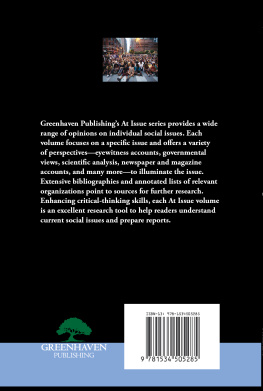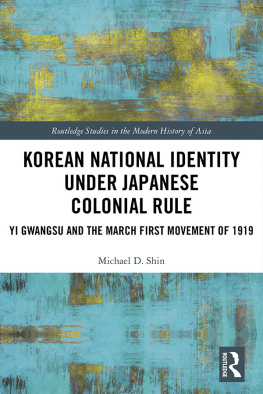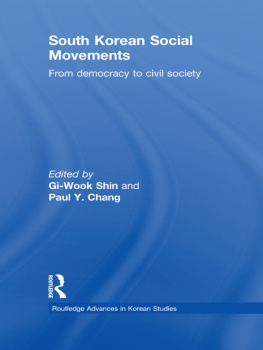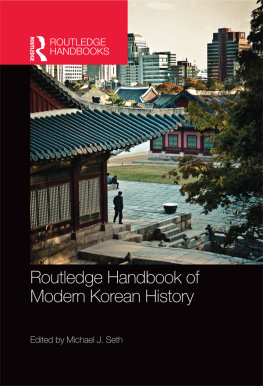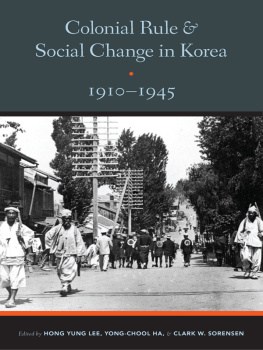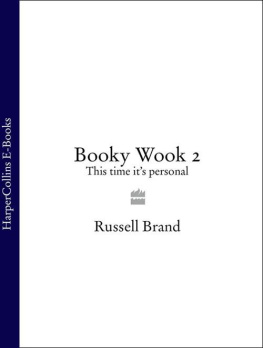Korean Studies of the
Henry M. Jackson School
of International Studies
James B. Palais, Editor
Korean Studies of the Henry M. Jackson School of International Studies
Over the Mountains Are Mountains: Korean Peasant Households and Their Adaptations to Rapid Industrialization
by Clark W. Sorensen
Cultural Nationalism in Colonial Korea, 19201925
by Michael Edson Robinson
Offspring of Empire:
The Koch'ang Kims and the Colonial Origins of Korean Capitalism, 18761945
by Carter J. Eckert
Confucian Statecraft and Korean Institutions:
Yu Hyngwn and the Late Chosn Dynasty
by James B. Palais
Peasant Protest and Social Change in Colonial Korea
by Gi-Wook Shin
Copyright 1996 by the University of Washington Press
Printed in the United States of America
All rights reserved. No part of this publication may be reproduced or transmitted in any form or by any means, electronic or mechanical, including photocopy, recording, or any information storage or retrieval system, without permission in writing from the publisher.
Library of Congress Cataloging-in-Publication Data
Shin, Gi-Wook.
Peasant protest & social change in colonial Korea / Gi-Wook Shin.
p. cm. (Korean studies of the Henry M. Jackson School of International Studies)
Includes bibliographical references and index.
ISBN 0-295-97548-2 (alk. paper)
1. Peasant uprisingsKoreaHistory. 2. Land tenureKoreaHistory. 3. KoreaHistoryJapanese occupation, 19101945. 4. KoreaHistory18641910. 5. Social movementsKoreaHistory. I. Title. II. Series.
DS916.55.S55 1996
9631636
951.9'03'08624dc20
CIP
The paper used in this publication meets the minimum requirements of American National Standard for Information SciencesPermanence of Paper for Printed Library Materials, ANSI Z39.481984.

ISBN-13: 978-0-295-80512-2 (electronic)
Preface
This book concerns the role ordinary people play in shaping history. In particular it explores the origins, forms, and legacy of peasant activism in Korea during its most turbulent years, 18761946. This period saw Korea open its market to foreign powers and undergo Japanese colonialism, agricultural commercialization, industrialization, and postcolonial revolutionary movements. Throughout, Korean peasants were not passive; their activities crucially affected these transforming events.
The role of the Korean peasant in social and political change has been neglected because of the current trend in Korean historiography to interpret peasant activities as simply part of a nationalist or communist movement. Some see nationalism and communism as incompatible and others do not, but neither side takes peasants seriously as independent actors. For them, the 1920s, 1930s, and early 1940s featured a nationalist peasant movement or communist peasant movement, but not a peasants peasant movement. To correct this overemphasis on the role of a nationalist/communist elite or a politics of revolution or nationalism, I assume the peasants perspective.
I do not present a general history of Korean peasant activism, but try to explain its various forms and nature. Korean peasants engaged in several forms of protest: tenancy disputes from 1920 to 1939, the red peasant union movement from 1930 to 1939, everyday forms of resistance from 1940 to 1945, and finally the rebellions of 1946 (see Chapters ). Accordingly, this study is theoretical and comparative as much as empirical and historical.
A sociohistorical approach is required because variation in Korean peasant activism cannot be properly explained by mere reference to the devastating impact of imperialism on the peasant economy, success or failure of leadership, or the repressive power of the statefactors past scholarship has stressed. The complex nature of protest is best understood by looking at the peasants changing socioeconomic situations from a historical perspective (see Chapters ). This does not suggest structural determinism. The effect of imperialism was mediated through the rural class structure, whose differentiation resulted in protest of diverse forms and nature.
The concluding chapter discusses the impact of peasant activism on later socioeconomic and political changes. Korean peasant activism in the first half of the twentieth century provided a social basis for subsequent social revolution in the north and social (land) reform in the south. This is consistent with the revisionist view of postwar Korean society and politics, but traces its origins back even to the colonial period. Also, I challenge the popular view of Korea's political economy which overemphasizes the roles of the world system and the state. A comprehensive understanding of development and change in contemporary Korea cannot be achieved without an account of the historical role of the peasant class.
This study began with work on my Ph.D. dissertation at the University of Washington and was extensively revised adding new chapters during my stay at the University of Iowa and University of California, Los Angeles. I am very grateful to Daniel Chirot for his support for my earlier as well as postgraduate work. It was he who introduced me to a sociological understanding of peasant protest action, and he never failed to offer warm encouragement of my examination of Korean peasant activism. Thanks also to Herbert Costner, Paul Burstein, and Edgar Borgatta for reading parts of this work in various stages. Bruce Cumings, Michael Robinson, Carter Eckert, Clark Sorensen, Elizabeth Perry, Stephen Vlastos, Jae-On Kim, Scott Eliason, Stephen Wieting, Charles Mueller, Kimura Mitsuhiko, and Chang Yun-Shik provided valuable comments on several chapters. In particular, I appreciate Bruce Cumings's detailed comments on my critique of his work in . Two anonymous readers from the University of Washington Press shared many valuable comments and suggestions for revision.
The Faculty Development Fund of the College of Liberal Arts and Sciences, the Professional Development Fund of the Center for Asian and Pacific Studies, and the Central Investment Fund for Research Enhancement, all at the University of Iowa, provided institutional support for my trips to Korea during the summers of 1992 and 1993 to collect additional data, including interviews. Also, a leave of absence from teaching in the fall of 1994 at UCLA allowed me to finish revision. I appreciate all their generous support.
Various chapters were presented at professional meetings, seminars, and colloquiums: at a colloquium sponsored by Yonsei University's sociology department in Seoul (June 1992), at the annual meetings of the American Sociological Association in Pittsburgh (August 1992), at a colloquium sponsored by Harvard University's Korea Institute (April 1993), at a seminar convened by the University of Washington's Center for Korean Studies (May 1993), and at the annual meetings of the Korean Sociological Association in Chunchn (June 1993). I deeply appreciate the forums to present my work and the sharpening of my arguments which those host institutions afforded.




